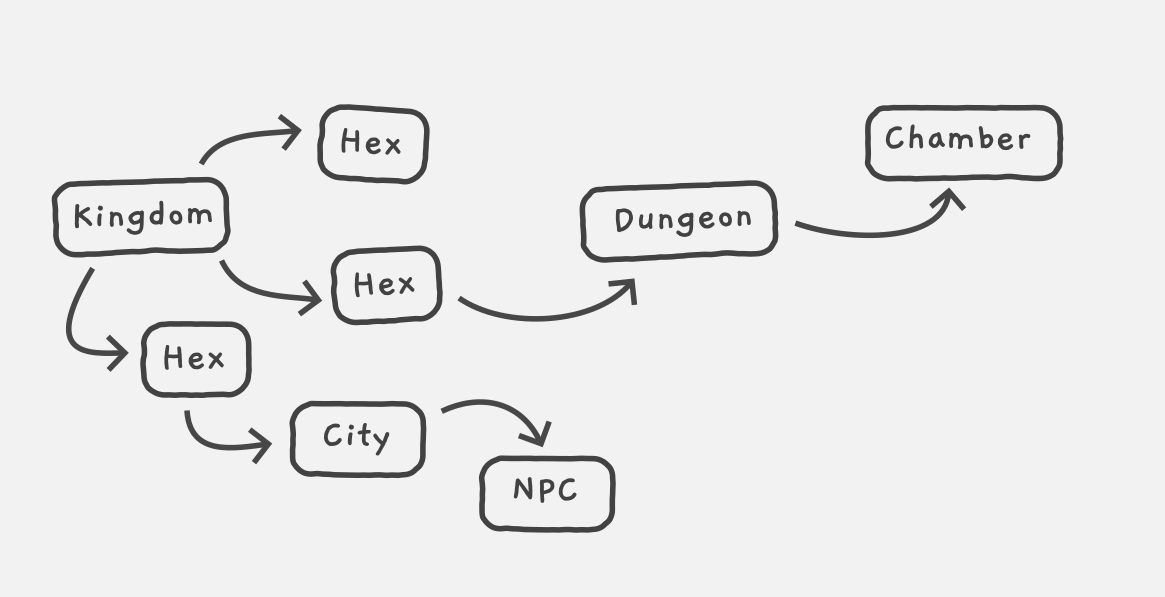hexroll-entities-graph
To better understand how this version of Hexroll handles changes in the entity graph, let's take a look at the following example.
Removing a dungeon
Realm is being generated
During the early stages of generating a realm, Hexroll will have a set of empty hexes generated.

The first layer of hex features is going to be dungeons. In this stage, Hexroll will begin adding random dungeons to random hexes.
 And then another one.
And then another one.

In later stages, Hexroll will begin adding other features, such as cities with NPCs.
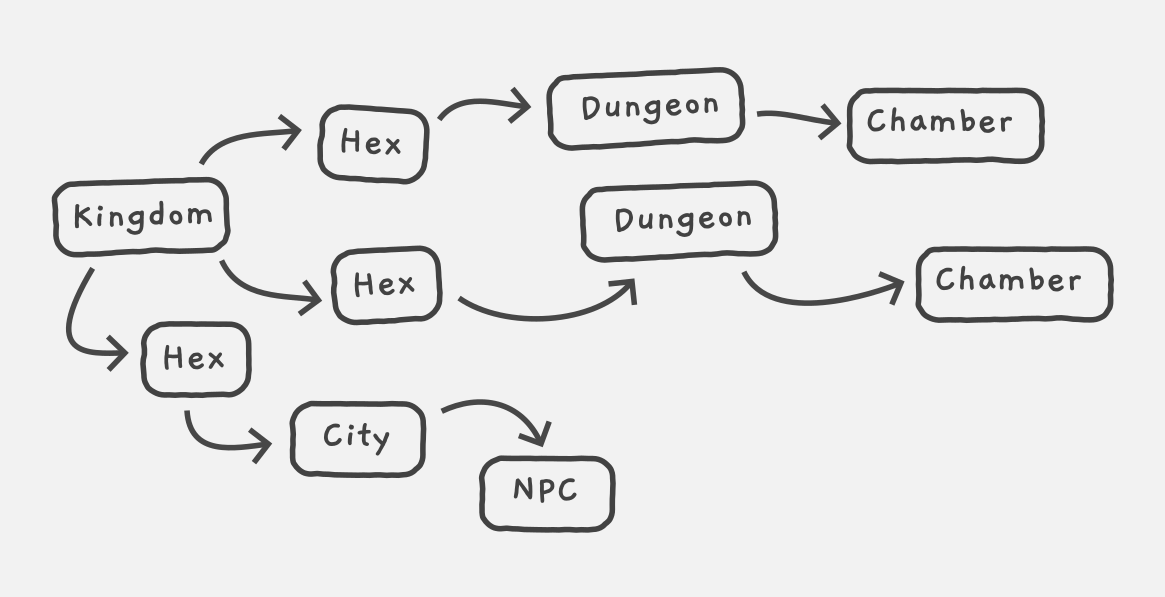
And together with NPCs, Hexroll will begin generating quests. Some quests will rely on locations generated in earlier stages.
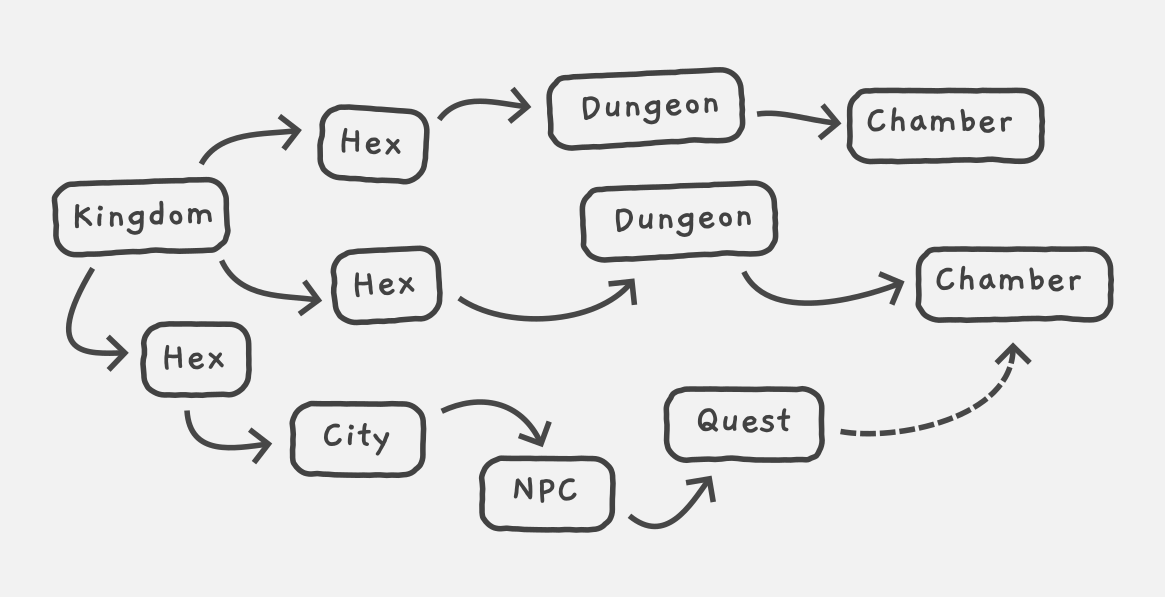
Dungeon is removed
If, while editing the map after quests were already generated, a location used by a quest is invalidated, Hexroll will try resolving the inconsistency by finding an alternative location for the quest. This same principle applies to other entity types throughout the sandbox.
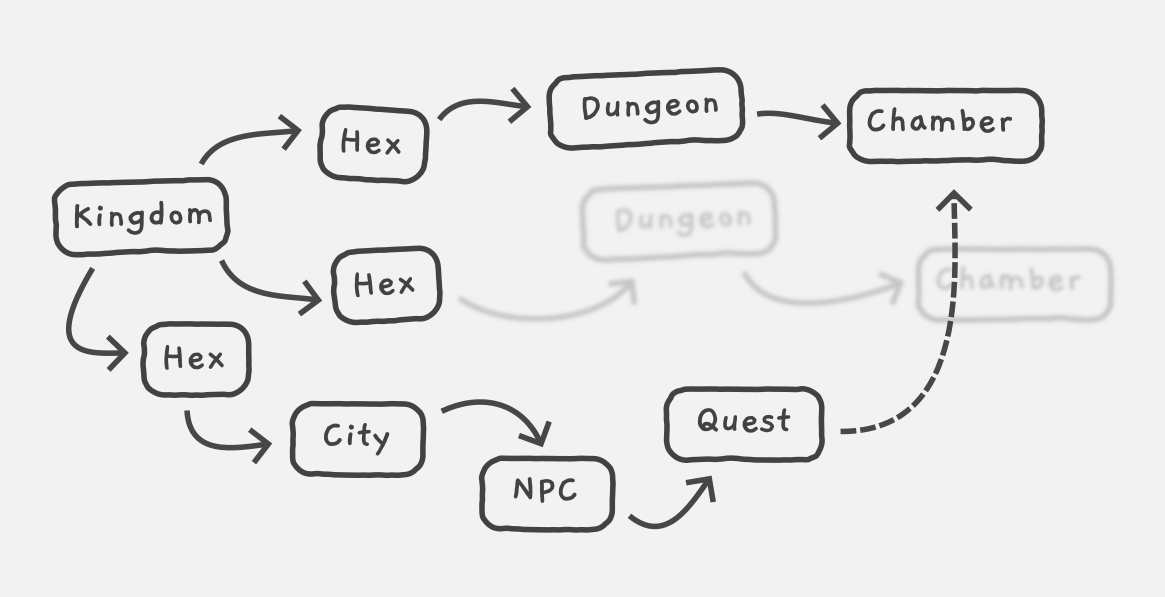
The last dungeon is removed
If following entity invalidation, an entity relation with another entity could not be reconstructed, it may invalidate the other entity as well.
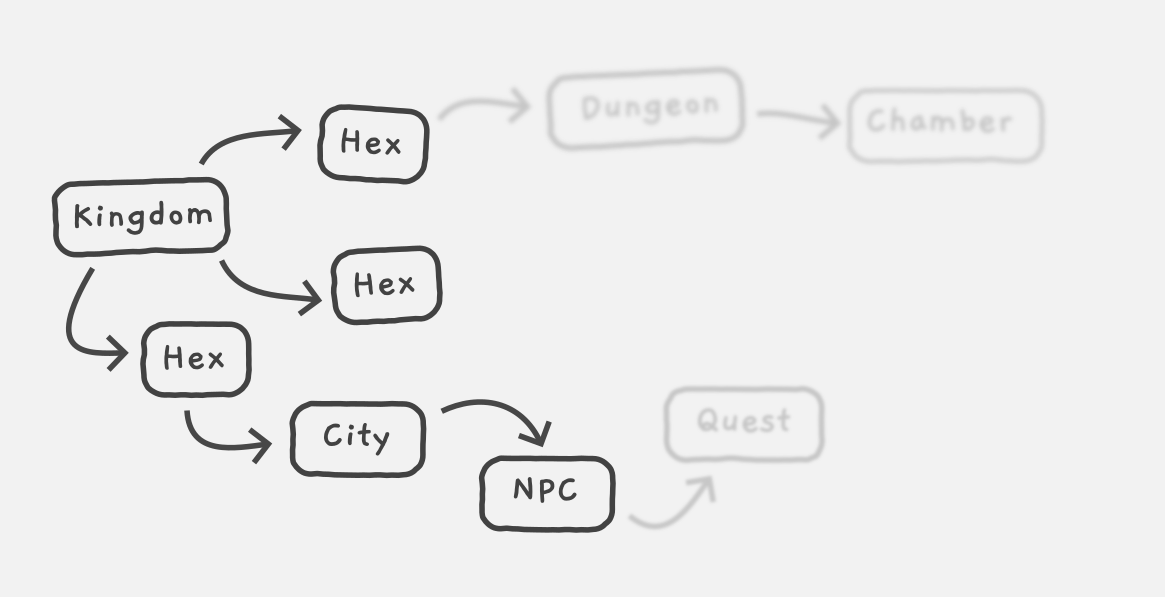
A new dungeon is added
Even if a new dungeon is generated, the invalidated quest is gone forever, and you will have to regenerate a new quest for the NPC.
